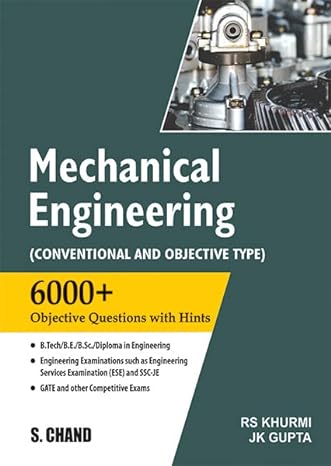Mechanical Engg. Exam 2024 – Exam, Syllabus, Pattern, Question Papers
In this comprehensive blog, you’ll find everything you need to navigate your educational journey seamlessly. From eligibility criteria and detailed syllabi to application procedures, admit card downloads, essential links, and past question papers, we’ve got you covered. Whether you’re a student preparing for an important exam or seeking valuable resources to excel in your studies, you’ll find all the information you need right here.
Important Dates
| 15/01/2024 | Release of Exam Form |
| 15/02/2024 | Admit Card Download |
| 10/03/2024 | Exam Start Date |
| 05/04/2024 | Exam End Date |
| 15/05/2024 | Result Declaration |
List of Exams
- GATE (Graduate Aptitude Test in Engineering):
- GATE is one of the most prestigious exams for mechanical engineers in India.
- It not only opens doors for postgraduate programs but is also a gateway to jobs in public sector companies.
- Mechanical engineering is one of the most popular branches for GATE aspirants.
- IES/ESE (Indian Engineering Services/Engineering Services Examination):
- Conducted by UPSC, this exam is for those who dream of serving in various government engineering departments.
- It includes three stages – Preliminary, Mains, and Interview.
- CAT (Common Admission Test):
- While not exclusive to mechanical engineers, CAT is vital for those considering an MBA after their bachelor’s in engineering.
- Many engineers pursue management degrees to complement their technical skills.
- PSU Recruitment Exams:
- Public Sector Undertakings like BHEL, ONGC, and NTPC conduct their recruitment exams.
- Mechanical engineers are often in demand in PSUs due to their expertise in various domains.
- Company-Specific Exams:
- Private companies like Tata Motors, Mahindra & Mahindra, and Larsen & Toubro have their placement exams.
- These exams are tailored to the company’s requirements and can vary in difficulty.
Subject-wise Syllabus
- Thermodynamics: Study of heat, work, energy, and the laws of thermodynamics.
- Fluid Mechanics: Understanding fluid properties, flow behavior, and applications in engineering.
- Strength of Materials: Concepts related to stress, strain, material properties, and structural analysis.
- Manufacturing Processes: Knowledge of various manufacturing methods and processes.
- Engineering Mechanics: Mechanics of solids and fluids, including forces, motion, and equilibrium.
- Machine Design: Principles of designing mechanical components and systems.
- Engineering Mathematics: Applied mathematics, including calculus, linear algebra, and differential equations.
- Stay updated with industry trends and emerging technologies.
- Engage in internships and practical projects to apply your knowledge.
- Develop soft skills like communication, teamwork, and problem-solving.
- Seek guidance from professors, seniors, and career counselors to tailor your preparation.

IMP Topics
- Engineering Drawing and Graphics: Understanding engineering drawings, projections, and CAD software.
- Mechanical Measurements and Metrology: Knowledge of measurement techniques, instruments, and precision engineering.
- Theory of Machines: Study of mechanisms, kinematics, and dynamics of machines.
- Heat Transfer: Concepts related to conduction, convection, and radiation.
- Machine Dynamics: Analysis of machine vibrations, balancing, and dynamic behavior.
- Control Systems: Basics of control theory, feedback systems, and automation.
- Industrial Engineering: Concepts of productivity improvement, optimization, and production planning.
0 Comments



